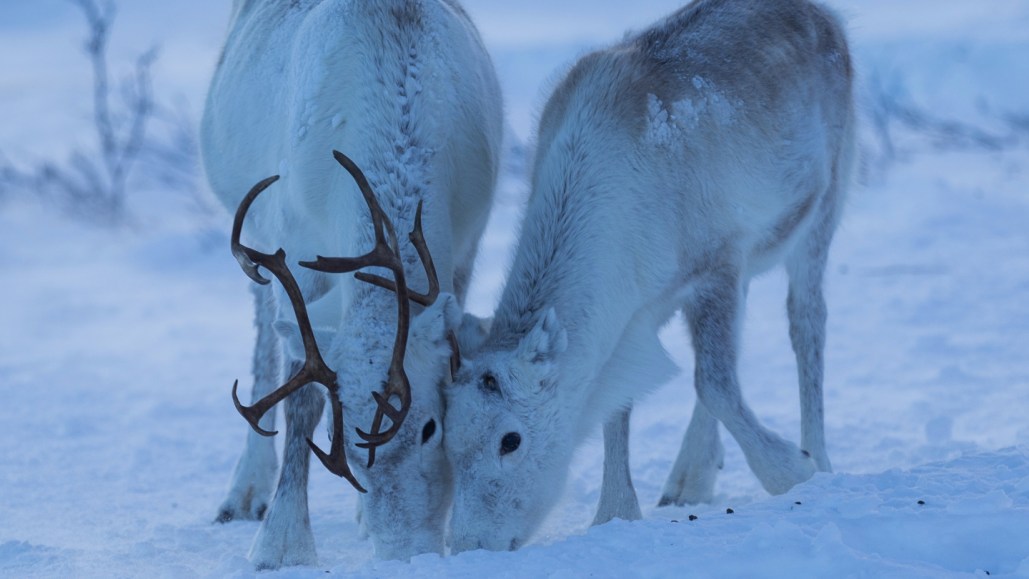Reindeer have the ability to sleep while they eat.

During the hectic holiday season, many of us tend to multi-task, and Arctic reindeer are no exception.
New research indicates that reindeer are able to eat and sleep simultaneously. This efficient approach, as reported in the December 22 issue of Current Biology, expands the list of clever methods animals use to manage sleep in challenging circumstances.
During summer, Arctic reindeer are notably active, feeding when the sun is up 24/7 and food is plentiful. Much like other ruminants, reindeer take a significant amount of time to chew on regurgitated food designed to make it easier to digest. In amidst all this food-processing, finding a moment to sleep might be difficult. That is, unless the reindeer could sleep and chew at the same time. To test this theory, neuroscientist Melanie Furrer and chronobiologist Sara Meier, along with their team, trained four female Eurasian tundra reindeer to endure a pen and electrodes on shaved parts of their skin. According to Meier from the University of Zurich, this involved a lot of lichen treats, which are highly favored by reindeer.
The research team's aim was to identify the brain waves that show up during non-REM sleep, a deeply restful sleep phase. These waves were noticed while the reindeer were processing food, although their rhythmic chewing made it difficult to confirm if these signals perfectly matched those of normal sleep. “We had to deal with the chewing movements, which somewhat interfered with the brain wave monitoring,” says Furrer, who also hails from the University of Zurich.
Nonetheless, additional signs indicated sleep during chew time. The reindeer exhibited calmness while ruminating, often shutting their eyes. “They displayed a high degree of relaxation, which mirrors the physical state of non-REM sleep,” notes Furrer. It was also found to be harder to distract a ruminating reindeer, as they were less likely to react to rustling from other reindeers. According to the research, reindeers that are prevented from sleeping require compensatory recovery sleep, but this recovery period was reduced when they spent time chewing.
Niels Rattenborg, a neurobiologist from the Max Planck Institute for Biological Intelligence based in Seewiesen, Germany, believes these findings strongly suggest that reindeer are capable of sleeping while they ruminate, despite not being involved in the study. Unlike fur seals, ducks, and migrating flying frigatebirds, ruminating reindeer indicate signs of sleeping with both halves of their brains.
Identifying exactly how reindeer accomplish this would be intriguing, says Rattenborg. He believes that studying different sleep mechanisms could provide insight on sleep walking in humans, which is a largely misunderstood and potentially harmful sleep disorder.
Study coauthor and neuroscientist Gabi Wagner from the Norwegian Institute of Bioeconomy Research in Tromsø reports that local reindeer herders have embraced a concept roughly translating to “pasture peace.” This means, “Reindeer require quiet time and space for peaceful rumination, and this study confirms this as a core physiological need,” says Wagner. “They need these tranquil periods to ruminate undisturbed, thereby allowing them to fulfill their sleep necessities.”
For the time being, the comforting news is that reindeer know how to look after themselves, especially considering some might have a busy Christmas Eve to contend with.




